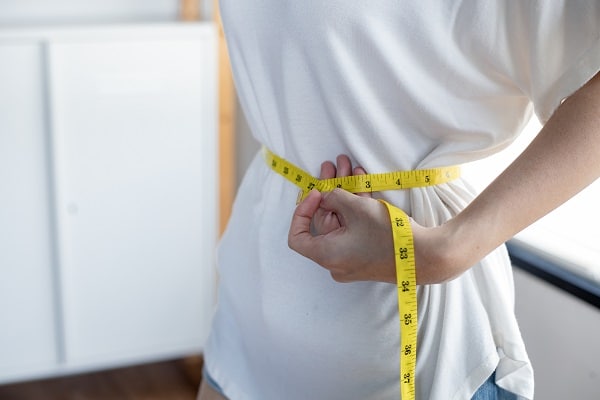Hypertension, or high blood pressure, is hazardous because it makes the heart work harder to pump blood throughout the body, leading to arterial hardening or atherosclerosis, leading to stroke, kidney illness, and heart failure. While the exact causes of high blood pressure are unknown, several factors may have a role, including:
- Use of tobacco
- Excess salt in the diet
- Drinking too much alcohol (more than two drinks each day)
- Anxiety
- The aging process
- The science of genetics
- High blood pressure in the family
- Kidney problems (chronic)
- Chronic ailments such as kidney and hormone problems, diabetes, and high cholesterol
- A lack of physical exercise
- Pills for birth control and other medications
The majority of persons with high blood pressure are “salt sensitive,” which means that anything more than their body’s minimal salt requirement is too much for them and raises their blood pressure. Obesity, diabetes, stress, insufficient potassium, calcium, and magnesium intake, lack of physical activity, and chronic alcohol drinking are all variables that can increase the risk of hypertension.
Eight lifestyle adjustments you should make to lower and maintain the blood pressure.
Contents
Maintain Your Weight And Waistline

Blood pressure frequently rises when people acquire weight. Obesity can also lead to sleep apnea, which causes blood pressure to rise even more.
One of the most beneficial lifestyle adjustments for lowering blood pressure is weight loss. If you’re overweight or obese, losing even a tiny amount of weight can help lower your blood pressure. Losing one 2 pounds lowers blood pressure by roughly one millimeter of mercury on average (mm Hg).
In general terms:
- Men with a waist size of 40 inches or greater need to be careful since they are more likely to get in peril. (102 cm).
- Women with a waist size of 35 inches or greater need to take care and start exercising already; they might be at risk
. (89 cm).
These numbers vary by ethnic group. To determine a safe waistline for you, consult your doctor.
Make It A Habit To Exercise Daily

Regular physical activity, such as 150 minutes per week or roughly 30 minutes most days of the week, can lower blood pressure by 5 to 8 mm Hg if you have high blood pressure. Because discontinuing exercise can cause the blood pressure to rise again, it’s vital to maintain consistency.
If the blood pressure is high, exercise can help you avoid getting hypertension. In addition, regular exercise can help you lower the blood pressure to more manageable levels if you already have hypertension.
Aerobic exercise such as jogging, walking, swimming, cycling, and dancing can help you lower your blood pressure. Strength training at least twice a week can also aid in blood pressure reduction. If you want to start an exercise plan, consult a doctor first.
Consume A Well-Balanced Diet

If you already have hypertension or high blood pressure, have a diet with fruits, low-fat products, vegetables, whole grains, and avoid cholesterol. Saturated fats can help you lower blood pressure up to 11 mm Hg. This dietary method is called DASH (Dietary Approaches to Stop Hypertension). It isn’t easy to alter your food choices, but if you follow these tips, you’ll be able to:
- Maintain a food diary. Keep a record of everything you eat, such as how much you eat, what you eat, and when. Even though it’s just for a day, a week, or a fortnight, keeping a food diary might tell many of your true food patterns.
- Increasing potassium intake is a good idea. By counteracting the effects of sodium, potassium can contribute to lowering high blood pressure. Potassium is best obtained from vegetables and fruits rather than tablets. Check with your doctor to find out how much potassium you should take.
- Be an astute consumer. When you’re shopping, read the labels on the foods you buy, and stick to your healthy eating plan even when you’re eating out.
Follow A Sodium-Reduced Diet

Even a slight decrease of salt in the diet can improve your overall heart health and reduce blood pressure. The effect of sodium on blood pressure varies from person to person. Limit your daily sodium consumption to not more than 2,300 mg. However, for most people, a daily salt intake of 1,500 mg is optimal. To minimize sodium in the diet, take the following advice:
- Consume processed meals in moderation. Organic products contain only a small amount of salt.
- Remove the salt from the recipe. A level teaspoonful of salt has 2,300 milligrams of sodium. Use spices or herbs to enhance the flavor of your food. Take it slowly at first. If you don’t think you’ll be able to reduce your sodium intake overnight, reduce it gradually and dramatically. Over time, your palate will adjust.
Limit The Amount Of Alcohol You Consume

Alcohol does have beneficial and harmful effects on one’s health. Drinking small amounts of alcohol – one drink a day for women, two drinks a day for men – can drop the blood pressure. If you drink heavily, however, this beneficial role is lost. A considerable elevation in blood pressure can be due to drinking more than small amounts of alcohol. It may also reduce the effectiveness of blood pressure medications.
Give Up Smoking

For many minutes after you finish smoking a cigarette, the blood pressure rises. Smoking cessation allows the blood pressure to return to normal. Quitting smoking can help you live a healthier life by lowering your risk of heart disease and improving your overall health. People who give up smoking may live longer than those who do not.
De-Stress And Unwind

Chronic stress can aggravate high blood pressure. More study is needed to find the influence of chronic stress affecting blood pressure. High blood pressure can be exacerbated if you respond to stress by smoking, drinking, or consuming unhealthy food. First, consider what causes your stress, such as your job, family, finances, or disease. Once you’ve identified what’s causing the stress, think about how you might eliminate or reduce it.
If you can’t eliminate all of your stressors, you can healthily handle them. Make an effort to change your expectations. For example, plan the day and have your objectives in mind. Start saying no and don’t take on too much. Recognize that while certain circumstances are out of your control, you can manage how you respond to them. Concentrate on challenges under your power and devise strategies for dealing with them. For example, speak to your manager if you’re experiencing a problem at the workplace.
Pay Attention To Blood Pressure At Home And Schedule Regular Visits With Your Doctor
Home monitoring may help you keep track of your blood pressure, make sure your lifestyle changes are working, and warn you and the doctor of any potential health problems. Blood pressure monitoring devices are easy to find and do not require a prescription. However, if you’d like to have your blood pressure under control, you must see a doctor daily. Check with your doctor about how often you should have the blood pressure tested if it is under control. It’s up to your doctor whether you should check it regularly or less frequently. If you’re altering medications or treatments, your doctor may recommend that you check the blood pressure two weeks after starting the new regimen.
Conclusion
Hypertension or high blood pressure is a condition that makes the heart work slower and increases the chances of cardiac arrest. Get your blood pressure checked regularly, keep a check with your doctor now and then, and last but not least, maintain your diet, weight, and stress level. Incorporate the above tips into your lifestyle to manage your blood pressure.


